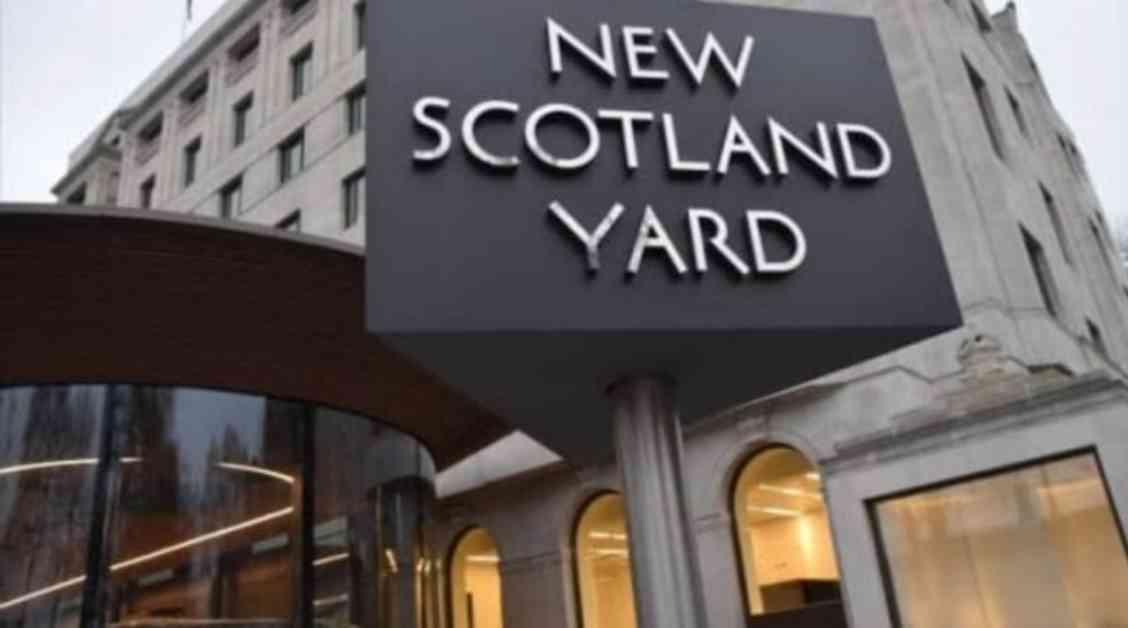Metropolitan Police Officer Acquitted of Assaulting Woman in Fare Evasion Case
A Metropolitan Police Constable, PC Perry Lathwood, has had his criminal conviction for assaulting a woman during a fare evasion incident overturned on appeal. The case, which has garnered significant public attention, involved an incident in Croydon in June 2023 where a woman was arrested on suspicion of fare evasion while traveling on a bus.
The incident, captured on video and shared widely online, led to PC Lathwood’s conviction for common assault on May 17 after a trial at Westminster Magistrates’ Court. However, today, at Southwark Crown Court, his appeal was successful, and his conviction has been quashed.
Assistant Commissioner Louisa Rolfe acknowledged the divisive nature of the incident, particularly its impact on black communities in Croydon and beyond. She emphasized the importance of respecting the court’s decision to clear PC Lathwood of the charges. While acknowledging that the handling of the incident was not perfect, Rolfe highlighted the need for valuable lessons to be learned through police misconduct mechanisms rather than the criminal courts.
The Metropolitan Police stated that PC Lathwood would remain on restricted duties pending the outcome of the misconduct process. The case has sparked discussions around police accountability, officer conduct, and the challenges faced by law enforcement in making split-second decisions under pressure.
Public Reaction and Community Impact
The case involving PC Perry Lathwood has generated significant public interest and sparked conversations around police conduct, accountability, and the treatment of individuals in custody. The release of the video depicting the incident in Croydon raised concerns about the use of force by law enforcement officers and the treatment of individuals suspected of minor offenses.
Community members, particularly in Croydon and among black communities, expressed outrage and concern over the incident. The video’s circulation on social media platforms amplified these sentiments, leading to calls for accountability and transparency in policing practices.
The acquittal of PC Lathwood on appeal has elicited mixed reactions from the public. While some view it as a validation of police conduct and decision-making under pressure, others see it as a failure of the justice system to hold officers accountable for their actions.
Police Accountability and Oversight
The case of PC Perry Lathwood raises important questions about police accountability and oversight in the handling of misconduct allegations and use of force incidents. The Metropolitan Police’s acknowledgment that the incident was not handled perfectly underscores the need for continuous improvement in officer training, conduct, and response to challenging situations.
Assistant Commissioner Louisa Rolfe’s statement regarding the importance of independent oversight and the need for a robust system of police accountability reflects the ongoing efforts to enhance transparency and trust between law enforcement agencies and the communities they serve. The push for a system that recognizes the complexities of policing and the demands placed on officers to act decisively in high-pressure scenarios highlights the delicate balance between public safety and individual rights.
The misconduct process that PC Lathwood will undergo following the quashing of his conviction is a crucial step in evaluating his actions during the fare evasion incident. It serves as an opportunity for the Metropolitan Police to address any shortcomings in officer conduct, training, and adherence to protocols in similar situations in the future.
In conclusion, the case of PC Perry Lathwood underscores the complexities and challenges inherent in policing and law enforcement. While the acquittal on appeal may have resolved the criminal charges against him, the incident serves as a reminder of the ongoing need for transparency, accountability, and continuous improvement in police practices. As discussions around police conduct and oversight continue, it is essential to prioritize the trust and confidence of the communities served by law enforcement agencies.

